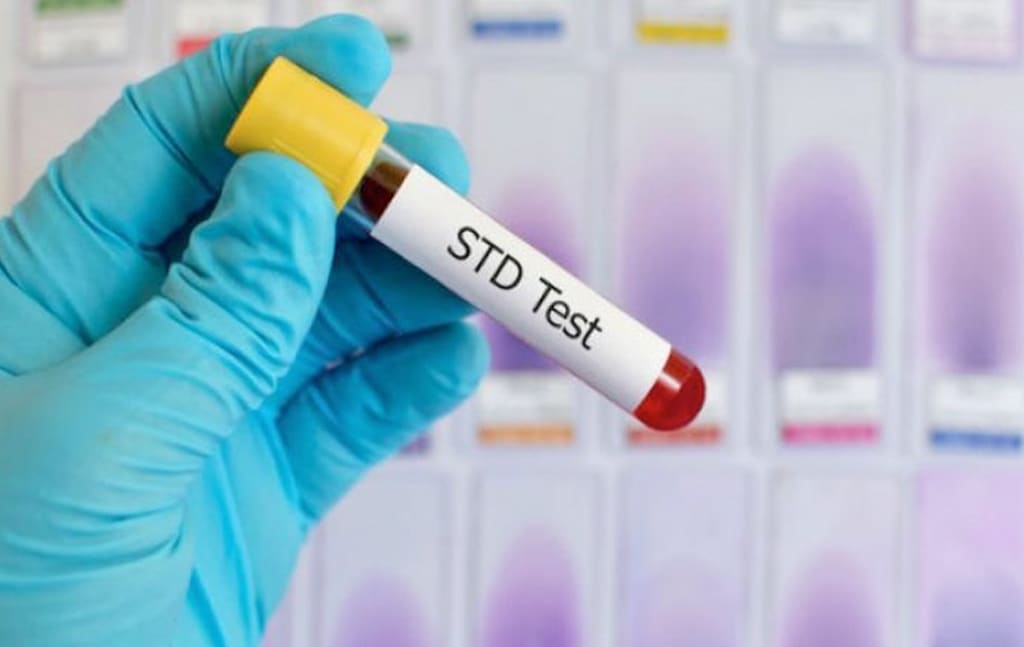STD Testing: How Does It Work?
Sexually transmitted infections (STIs), often known as sexually transmitted diseases (STDs), are widespread.

Sexually transmitted infections (STIs), often known as sexually transmitted diseases (STDs), are widespread.
According to the Centers for Disease Control and Prevention (CDC), 68 million persons in the United States have STIs in 2018. Many STIs are likely to go unreported; thus the figure could be higher.
Many STIs have no or very vague symptoms, making them difficult to detect. Some people are also put off by the stigma associated with STIs.
If left untreated, STIs can lead to serious health issues such as cancer and infertility. Only testing can determine whether you have an STI. In this article, we'll go through who should get tested, where you can get tested, and other frequently asked questions.
Note: In this article, we use "male and female, men and women" to refer to someone's sex as determined by their chromosomes, not a social construct that varies over time and culture.
What exactly is an STD?
The distinction between STDs and STIs is frequently blurred.
An STD is a sexually transmitted disease that develops as a result of an STI. When bacteria, parasites, or viruses invade the body, they cause infections. This occurs before the onset of a disease.
While STDs are caused by infections (STIs), having an STI does not guarantee that you will acquire a disease as a result of that infection.
As previously stated, some infections may cause no symptoms; therefore, testing is crucial for limiting the spread of STIs. A sickness, on the other hand, usually has more distinct signs or symptoms.
When should you have an STD test?
If you've been sexually active, you should get tested for STDs. Additionally, get tested if:
- You're going to start a new romantic relationship.
- You and your partner are considering not using condoms or other barrier birth control techniques.
- Your lover has betrayed you.
- You or your mate have more than one sexual partner.
- You have symptoms that indicate you may have an STD.
You may not need regular STD testing if you're in a long-term, mutually monogamous relationship and both you and your partner were tested before starting the relationship.
However, many people in long-term relationships were not evaluated prior to their union. If this is the situation for you and your partner, one or both of you may have been living with an undiagnosed STD for years. Getting tested is the most secure option.
What types of STIs should you be tested for?
There are several types of STIs. Consult with your physician to determine which ones you wish to be tested for. They may suggest testing you for chlamydia, gonorrhea, hepatitis B, HIV, syphilis, and trichomoniasis.
Some of the STIs are notifiable diseases. This means that your doctor has a duty by law to disclose favorable results to the government if you have chancroid, chlamydia, gonorrhea, hepatitis, HIV, or syphilis. The government collects this data to inform public health activities.
Unless you have known exposure or request a herpes test, your doctor will unlikely provide you with this test.
How are STI tests performed?
Depending on your sexual history, your doctor may request a range of STI tests, such as:
Urine and blood tests
Most STIs can be detected via urine or blood tests. Urine or blood tests can be ordered by your doctor to check for gonorrhea, syphilis, chlamydia, or HIV.
Urine and blood tests are not always as accurate as other types of testing. Blood testing may potentially be unreliable for a month or more after being exposed to certain STIs.
Swabs
Many doctors use vaginal, cervical, or urethral swabs to test for STIs.
- If you have a vagina, your doctor may use a cotton applicator to take vaginal and cervical swabs during a pelvic exam.
- If you have a vagina or a penis, they can take urethral swabs by inserting a cotton applicator into your urethra.
- If you had anal sex, they might also take a rectal swab to check for infectious organisms in your rectum.
Pap smears and HPV testing
A Pap smear is not, strictly speaking, an STI test. A Pap smear is a screening test used to detect early symptoms of cervical or anal cancer.
People who are assigned female at birth who have chronic HPV infections, particularly infections with HPV 16 and HPV 18, are more likely to develop cervical cancer. HPV infections can cause anal cancer in those who have anal intercourse.
A normal Pap smear result provides no information regarding whether you have an STI. Your doctor will prescribe a separate HPV test to screen for HPV.
According to the Centers for Disease Control and Prevention, approximately 13 million people in the United States develop HPV each year, and most sexually active people will contract at least one kind of HPV at some point in their life.
Your doctor may use a physical exam to diagnose some STIs, such as herpes and genital warts. They will search for STI sores, rashes, and other symptoms. They might also collect samples from any suspect places and send them to a laboratory for examination.
Ask your doctor
If you go to the doctor for a yearly physical or sexual health checkup, don't expect your doctor to test you for all STIs. Many doctors do not routinely test their patients for STIs. It's critical to ask your doctor about STI testing, your risk factors, and which tests they want to perform and why.
Taking care of your sexual health is not anything to be ashamed of. Consult a doctor if you are concerned about a specific infection or symptom. The more truthful you are, the better your treatment will be.
About the Creator
Amelia Grant
I am journalist, and blogger.






Comments
There are no comments for this story
Be the first to respond and start the conversation.